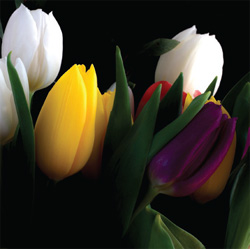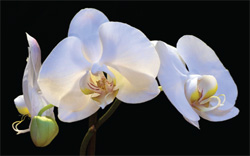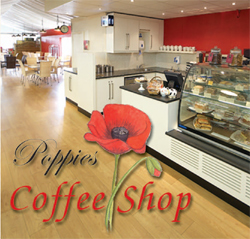|
Although Spring Flowering bulbs are traditionally sold in the Autumn, we have had bulbs in the Garden Centre since the beginning of August, and will probably continue selling them right through until mid November. There is such a range of bulbs available, all of which flower at slightly different times, and, as a very general rule, bulbs will flower in the order in which they are planted. First up to flower are the Colchicum’s, or Autumn Crocus. They are not actually related to the crocus, and don’t flower in the Spring! The only reason I am including them here is because they are sold with the first of the bulbs in late July and August, the flowers appear straight from the bulb and then the foliage follows in the spring. They are not for everyone as they are poisonous, can be untidy and the flowers struggle to support themselves, but they are very pretty flowers, ideally planted in rough grassland. Of the ‘big four’ crocus are next up to flower, we can often picture them flowering with a covering of snow in early spring. The purple/ yellow/pink flowers tend to flower just after the snowdrops and before tulips, crocus are not too fussy about soil types and can be planted into the ground or into containers. Anything ‘yellow’ growing on the roadside in March or April, will be recognised by us all as a daffodil, but actually could be a narcissus. All daffodils are narcissi, but not all narcissi are daffodils; considering that ‘daffodils’ have often been voted the nations favourite flower, often beating the rose, they are a very complex and range of plants. Heights can vary from 7cm (3”) to 60cm (2’), the flowers range from white through pale yellow, deep yellow, orange and even red. Nearly all varieties apart from the Tazetta range are fully hardy and will flower and grow in all weathers; this Tazetta range includes varieties such as Paper White and Soleil d’Or, which are the scented varieties we often have in the house for Christmas. Even though we probably grow more narcissi in our parks and gardens in the UK, tulips have a greater range of colours, a much wider flowering period and have created more historical interest around the world than probably any other plant. Most tulips have single flowers, but ‘broken’ varieties have been hugely popular; these are varieties that often have second or third colours appearing as streaks, feathers or splashes,. Interestingly these have created unbelievably high prices in Victorian times but they are simply caused by Vvrus’s causing a mutation in the flower. Don’t get too excited if you find one in your garden, they are not as popular as they once were! We probably know hyacinths best as a houseplant, often planted in a basket or shallow bowl and ‘forced’ to flower early in time for Christmas. However, as an outdoor bulb, hyacinths also have a lot of merit. They are neat, have a wide range of colours, a long flowering period and, of course, a lovely sweet smell. Forcing is a technique usually applied to early and relatively small flowering bulbs, such as hyacinths, crocus and the Tazetta narcissi. Using a pot or bowl with a layer of moist bulb compost at the bottom, place the bulbs close but not touching, gently firm compost around the bulbs leaving the tips of the bulbs just out of the compost and below the top of your container, water them in, but not too much, the compost must not become ‘soggy’. The container should now be placed into a cold but frost free dark position. This cold spell should last for 8-14 weeks depending upon variety; it is essential to keep them cool, warmth at this stage will lead to failure. When the shoots are 2-5cm long, the plants should be brought into a cool room indoors; moving them to a lighter warmer spot after 3-5 days, the foliage will begin to appear and in a couple of weeks the flower buds should develop. When there is a slight colouring to these buds, move them to a bright (but not direct sun), warmer spot, keeping the compost moist and a constant temperature of around 15-18°C, you will then swiftly get a colourful display. In order to get hyacinths flowering for Christmas, you need to begin forcing them in the first three weeks of September, using ‘prepared’ hyacinths brought from the Garden Centre, smaller garden hyacinths have not been prepared by the grower in order to respond to forcing. BOSWORTH’S Nurseries & Garden Centre OPEN: Mon-Sat: 9am - 6pm All Credit Cards Accepted NOT JUST A GARDEN CENTRE |
|



